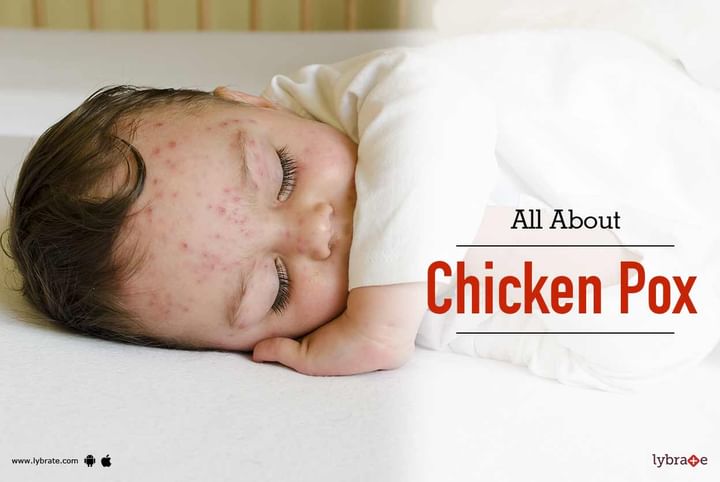All About Chicken Pox
Chickenpox is an airborne illness, which spreads effortlessly through sneezes and coughs of an affected individual. The disease is highly contagious and is caused due to an infection by the varicella zoster virus (VZV). The characteristic features are skin rashes that form small, itchy blisters. It may also spread through contact with the person affected with blisters.
Symptoms: The early signs in teenagers and adults (loss of appetite, nausea, pain in muscles and headache) followed by the trademark rash or oral sores and mild fever that indicate the presence of the ailment. In children, there is an absence of the early signs. The rashes begin as red spots on visible areas of the body and thereby increases in severity as time progresses.
At the stage of blister, intense itching occurs. Visible symptoms develop in the oral cavity and tonsil in the form of ulcers, which can be extremely painful. These symptoms appear between 10 to 21 days of contact with the infected person. Since the nasal excretion contains the virus, the infected person becomes infectious around 2 days before the visible symptoms appear. Usually, the condition self resolves in around 2 weeks.
Prevention: Chicken pox can be prevented by:
- Maintaining proper hygiene standards. The infected person should be kept in isolation. The virus is susceptible to disinfectants, heat and detergents.
- In most top countries, compulsory vaccination is followed to prevent chicken pox. After the first immunization, the second dosage is recommended after 5 years.
Treatment: Easing the symptoms is the main focus of treatment. The infected are advised to remain at home, in isolation, in order to prevent the spread of the disease. Measures should be taken to avoid scratching so that secondary infections are prevented. Good hygiene and using of warm water to clean the skin daily, is mandatory. Paracetamol might be used to reduce fever. Treatment using antivirals (with 24 to 48 hours of onset) is recommended for adults, but not for children. Water intake to reduce dehydration and headache is advised.
Since chickenpox is more severe in adults than it is in children, parents usually favour their wards receiving the virus at an early age. This is countered by doctors who believe that children are safer using vaccination, which is the virus in a weakened form, rather than the disease that may prove to be fatal.



+1.svg)
